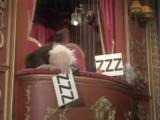What do you think?
Rate this book


352 pages, Hardcover
First published January 1, 2012
 BOTW
BOTW

 1. It's on a trip to Tallin that that Gideon agrees with his friend Tom to walk the Camino in Spain. Later, reality bites!
1. It's on a trip to Tallin that that Gideon agrees with his friend Tom to walk the Camino in Spain. Later, reality bites! This is on in this slot because it is being re-launched with a new cover and EVFring. The original description:
This is on in this slot because it is being re-launched with a new cover and EVFring. The original description:  1. It's on a trip to Tallin that that Gideon agrees with his friend Tom to walk the Camino in Spain. Later, reality bites!
1. It's on a trip to Tallin that that Gideon agrees with his friend Tom to walk the Camino in Spain. Later, reality bites! 2. Travel on the Camino continues. There are hardships, but also rewarding friendships with Roman and David, and the lovely Nora and Alina.
2. Travel on the Camino continues. There are hardships, but also rewarding friendships with Roman and David, and the lovely Nora and Alina. 3. The next adventure is Shikoku, Japan. It's a temple pilgrimage that goes round and round,
3. The next adventure is Shikoku, Japan. It's a temple pilgrimage that goes round and round, 4. Grandfather Max has gone back to America, so the author proceeds alone on his circular Temple trail.
4. Grandfather Max has gone back to America, so the author proceeds alone on his circular Temple trail. 5. It's to Uman in Ukraine to celebrate Rosh Hashanah with
5. It's to Uman in Ukraine to celebrate Rosh Hashanah with And this is so different from countless other tomes about 'now-atoning dissolute rakes' down the centuries how exactly!? Poor little rich boy goes walk about to navel gaze, and as Shania points out: 'That Don't Impress Me Much'.
And this is so different from countless other tomes about 'now-atoning dissolute rakes' down the centuries how exactly!? Poor little rich boy goes walk about to navel gaze, and as Shania points out: 'That Don't Impress Me Much'.